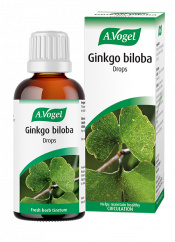Working memory tests
Your working memory is part of your short-term memory and is said to last between 20 and 30 seconds. A good example of working memory is when you memorise a telephone number long enough for you to write the digits down.
- One of the best ways of testing your working memory is to remember a small number of items for a short period of time. For example, take a few seconds to remember a three digit number (eg. 367) then write it down. Next try this with a four digit number (eg. 6892), then five (eg. 78682), six (eg. 683016) and so on. See how many you can remember – most people manage about 6 or 7. Grouping the numbers tends to improve your score. For example, instead of remembering 683016, remember 68-30-16. This is very useful for remembering telephone numbers
- The same test can be carried out with letters. Generally speaking, people can remember more numbers than words
- You can also look at a grid of words for 90 seconds, such as this one, then close the box and try to write down as many as you can.
Short-term memory test
Your short-term memory helps you recall information from a few seconds ago to a few days.
Many people can learn a limited amount of information for a short period of time before it is forgotten. However, other events, such as what you did last weekend, tend to remain for a bit longer.
If your memory is working well, you will be able to remember what you had for lunch today and probably every day this week. However, thinking back to three weeks ago, you might be able to remember one or two meals, but will unlikely remember more than that.
Simple short-term memory tests include writing down all the meals you have eaten in the past week, what programmes you have watched on television, what appointments you have attended or the people you have met in the past 7 days.
Long-term memory tests
Your long-term memory helps you recall facts and information (eg. your address or date of birth) as well as skills such as how to tell the time or riding a bicycle.
Most long-term memory tests include trying to recall the exact appearance of objects you see regularly but don’t usually pay much attention to. For example, can you remember which way the queen is facing on a pound coin or on a stamp?
Other tests include looking at old school photographs and seeing how many people you can recognise and name.
Dementia or Alzheimer’s test
Alzheimer’s disease is a form of dementia characterised by physical changes to brain tissue. Like other forms of dementia, it gives rise to memory loss as well as other defects in brain function such as the ability to think and reason.
People who notice memory loss may worry that they could be suffering from dementia or Alzheimer’s, especially if they are beyond the age of 60 or 70. It is important to remember that with age, a slight loss of memory is common and normal – and does not necessarily indicate early signs of dementia.
If you are worried that you (or someone you know) may have Alzheimer’s, try the clock test. Without looking at a clock, try to draw one, including the numbers on the face of the clock. Then, draw in the hands to indicate a specific time (such as 3.40).
You get one point for drawing a closed circle, one point for placing the numbers correctly, one point for including all twelve numbers and one point for placing the hands correctly at the time specified.
Results
If you are at all concerned with the results of any of the tests above, it is important to seek medical advice, in particular if you struggle with the clock test.
Remember that these tests are designed to challenge your brain and you are not likely to be able to perform each one perfectly. Many factors can affect your results, including the amount of stress you are under, any distractions you are facing and how much you have slept recently. Our page on causes of memory loss may also be helpful to you.








